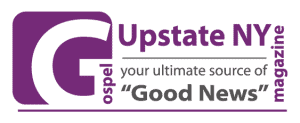“The master was full of praise. Well done, my good and faithful servant. You have been faithful in handling this small amount, so now I will give you many more responsibilities. Let’s celebrate together!”(Matthew 25:21)How can we act responsibly with any tax refund dollars received this year? What decisions should we consider making that will positively impact us today and into the future? During the COVID-19 pandemic, many of us have been impacted in one way or another. Either emotionally, physically, or financially. Given the hardships that we have faced and are still working through, it may feel appropriate to ease some of our mental anguish and frustration by impulsively spending the money we receive this tax season. Some of us may have already spent our tax refund in our minds before receiving it in our bank account. Let me pause here and clarify that while I don’t intend to imply that my perspective on what and how we should spend these refund dollars is the “right” way, my goal is to offer my perspective. Each of us makes choices about what will allow us to live a long and fulfilled life. I humbly offer my thoughts for your consideration. To start, let’s come to a common understanding of what a tax refund is. For clarity, this is NOT free money. In most cases, tax refunds are your money paid back to you from the state or federal government. Tax refunds are given when a person’s tax liability is less than what was paid. For most people working aW-2 job, their employer will withhold and pay their income tax on their behalf. When an employee files their taxes, they will either owe any taxes that were not with held during the year or receive a refund payment for the amount paid in excess of what should have been paid. According to IRS.gov, the average tax refund in the 2019 tax year was approximately $2,700.While many of us would rejoice at the notion of receiving a$2,700tax refund, consider what those dollars could have done for you and your family during the year if you received them in your pay versus giving an interest-free loan to the federal and state government essentially. We won’t dive into specifics of how we can alter our tax withholdings in this article, but take a moment to reflect. Before sharing the three ways I believe we can be good stewards with our refund dollars, let me share some quick thoughts on what I’d encourage us to avoid. First, resist the urge to indulge in “retail therapy” and go on a shopping spree to buy things that are not protecting or adding value to yourself and your family. While that new vehicle or gadget may be enticing at the moment, avoid the temptation to act compulsively. Second, on the opposite end of spending the money is allowing it to sit in our checking account or under our mattress, earning zero interest. We’ll discuss this a little more shortly. Last, with all of the recent headlines related to the stock market and investing, please (pretty please) avoid gambling your refund money away by speculating on investment opportunities. While we would love to be the lucky person to profit off the next GameStop or AMC investment, these “opportunities” are rare for most people who are not actively studying and investing in the market. Now that we have that out of the way, here are three ways to consider spending your tax refund.1.Establish an emergency fund The unfortunate reality is that most Americans don’t have enough saved for a$1,000unplanned expense. CNN recently reported, “Just 39% of Americans would be able to cover an unexpected $1,000 expense, according to a new report from Bankrate.com. That’s down from 2020 when 41% of people said they could cover a $1,000 cost with their savings. Another 38% would need to borrow money, either by using a credit card or borrowing from family to pay for a surprise cost such as a medical bill or emergency repair.” Each day brings its own set of circumstances, and we cannot predict what tomorrow will bring. Therefore, knowing that life will inevitably happen at some point, let’s be prudent in our financial habits by making sure we have at least $1,000 in an emergency (aka “rainy day”) fund so that an unexpected expense does not cripple us. If you already have $1,000 in an emergency fund, you could use your refund to work towards a fully-funded emergency account containing 3-6months of living expenses.
ADVERTISEMENT

While this account should not be considered an investment account, please make sure it’s in an account that is paying some interest versus keeping it in your checking account and not collecting any interest. For information on high yielding money market accounts, visit sites like bank rate. comornerdwallet.com. You can also check in with your local credit union.2.Pay down debt According to a CNBC report from 2020,”47% of Americans are carrying credit card debt, according to a survey fromCreditCards.com. Almost one-quarter (23%) of cardholders have added to their credit balance as a direct result of theCOVID-19pandemic.”Debt can be a burden weighing down our subconscious minds for years on end. The feeling of someone holding a financial obligation over our heads can be draining and frustrating at times. After establishing our “rainy day” fund for peace of mind in the event of a short term emergency, I’d suggest we consider paying down our debt obligations, starting with the highest interest debt. In addition to the peace of mind knowing you’re chipping away at that debt cloud over your head, saving money on interest payments can be considered similar to earning that amount of money–”a penny saved is a penny earned.” Write a list of all the debt you currently have (mortgage, car payment, credit cards, etc.) and how much interest each of these carries, then decide which to tackle first.3.Invest in future security Suppose you are fortunate to have a fully funded emergency account and have a good handle on your debt. In that case, your tax refund could provide the capital needed to provide additional financial security to you and your family. Here are three to consider: First, get your final affairs in order by purchasing a life insurance policy and a will. These will provide the financial assistance and clarity needed to avoid additional stress that your family could experience while also grieving your passing. If you have a family with young children, it’s imperative to have at least a term life insurance policy to supplement your income (preferably10-12 times). When purchasing life insurance, be sure to buy a policy outside of what is offered by your job because in the event you lose your job, it is likely you will also lose the life insurance policy. Second, open or add to an individual retirement account (IRA).According to the IRS, you can contribute$6,000 annually ($7,000 if over 50 years old) to a Roth or Traditional IRA. Third, take the opportunity to learn or grow a skill that will enable you to earn more income in the future. Consider investing in a book, course, or coach. This investment in your development has the potential to positively impact each of the areas discussed in this article. As you develop more skills, you will be better equipped to drive actionable results in your life. I hope these considerations serve you and your family. Please note that the insights shared here should not be considered financial advice. If you require financial advice, please contact a certified/licensed professional to assist you. I’d appreciate the opportunity to connect. For more information, visit MatthewWagstaff.com and connect with me on LinkedIn. Until the next time… Live Long & Prosper!
References:www.irs.gov/newsroom/filing-season-statistics-for-week-ending-july-24-2020www.cnn.com/2021/01/11/success/1000-emergency-expense/index.htmlwww.cnbc.com/2020/05/04/almost-half-of-america-now-carrying-credit-card-debt-and-more-of-it.html









